How AI headshots have become the backbone of headshot photography
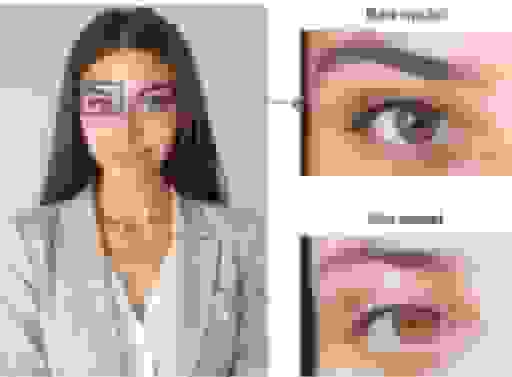
AI headshots have transformed photography by making it more accessible and affordable. This technology offers professionals the ability to produce consistent, high-quality images quickly. Yes, we are not kidding. It's advanced way beyond anyone would have thought one year ago. It's crazy right now.
Increased Accessibility And Affordability
AI headshots have become more accessible to a broader audience. With advancements in technology, individuals can now create professional-grade images at a fraction of the cost of traditional photography. This is mainly due to the availability of user-friendly AI headshot software that does not require expensive equipment.
The price reduction benefits businesses and individuals alike. Companies that need regular updates of employee profiles can save money, while job seekers can improve their professional image without a considerable financial investment. This lowered financial barrier allows more people to obtain high-quality headshots with ease.
Time-Saving Advantages For Professionals
AI headshots significantly reduce the time required for photo sessions and editing. Traditional photography involves scheduling shoots, posing for multiple takes, and waiting for edits. In contrast, AI tools can generate headshots quickly, often in just a few minutes.
This swift turnaround time is crucial for professionals updating their photos regularly. It frees up time for photographers and companies, enabling them to focus on other essential tasks. This efficiency is especially beneficial in industries with frequent image updates, such as acting or corporate sectors.
Consistency In Quality Across Multiple Images
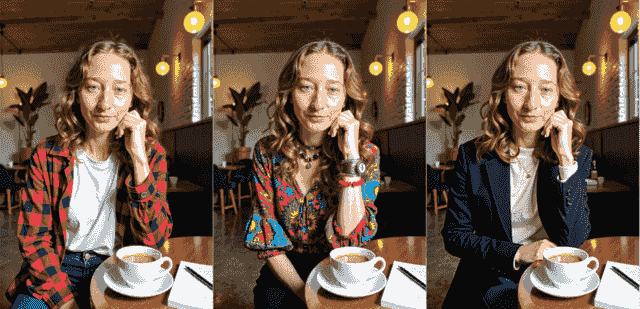
AI technology ensures a high level of consistency in the quality of images. By using algorithms, AI headshot tools standardize lighting, background, and retouching, producing uniform results across batches of photos. This is particularly valuable for businesses that require a cohesive team presentation on their websites or marketing materials.
The consistency in quality helps maintain a professional appearance across various platforms. It minimizes human error during manual editing, ensuring all images meet the desired standards. Consistent visuals can reinforce a brand's identity and reliability, making AI headshots an appealing option for many organizations.
Recent Advancements In AI Headshot Technology
Recent advancements have significantly improved AI headshot technology, enhancing the quality and functionality of generated photos. Features such as facial recognition, detail preservation, and lighting manipulation have notably progressed.
Improved Facial Recognition And Mapping
Facial recognition and mapping have become more sophisticated. AI algorithms now create almost indistinguishable headshots from those taken by professional photographers. These systems accurately identify and replicate facial features and expressions by utilizing facial recognition technology. This advancement ensures that headshots capture the unique aspects of a person's appearance while retaining the natural expressions that make each face unique.
These improvements also allow for more precise mapping of facial structures. AI algorithms identify subtle facial contours and adjust the positioning of features like eyes and mouth more accurately, leading to a more realistic and flattering representation of the subject. As AI models improve, the precision of facial mapping continues to enhance the overall quality of AI-generated headshots.
Enhanced Detail Preservation And Skin Texture Rendering
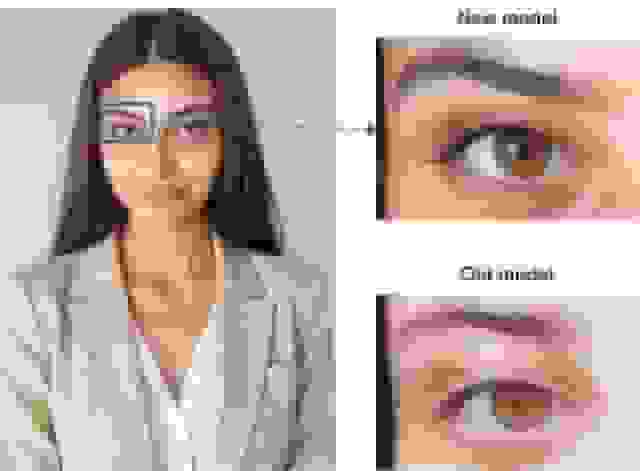
The latest AI headshot generators excel in detail preservation and skin texture rendering. AI technology now ensures that every detail, from the skin's texture to the sheen in the eyes, is captured and reproduced with remarkable clarity. This results in professional-quality images that maintain the subtleties of natural skin tones and textures, eliminating the overly smooth or artificial appearance seen in earlier AI outputs.
Additionally, AI headshot generators intelligently recognize variations in skin types and adjust rendering accordingly. They preserve natural blemishes and unique skin features like freckles or moles while enhancing the overall portrait's aesthetic qualities. This nuanced approach helps to create headshots that look both professional and authentic.
More Sophisticated Lighting And Background Manipulation
AI headshot generators have also improved in manipulating lighting and backgrounds. These tools can now apply realistic lighting effects, enhancing facial features and depth. The manipulation of lighting and backgrounds allows for dynamic and adaptable headshots that fit various professional needs.
For example, subtle changes in lighting enhance contours and shadows, giving the subject a more three-dimensional appearance. AI models can also seamlessly integrate unique backgrounds and backdrops that complement the headshot, whether for corporate settings or creative projects. This capability to integrate diverse and sophisticated elements in headshot photography demonstrates AI's potential to meet the growing demand for versatile professional images.
Building Character And Authenticity In AI Headshots
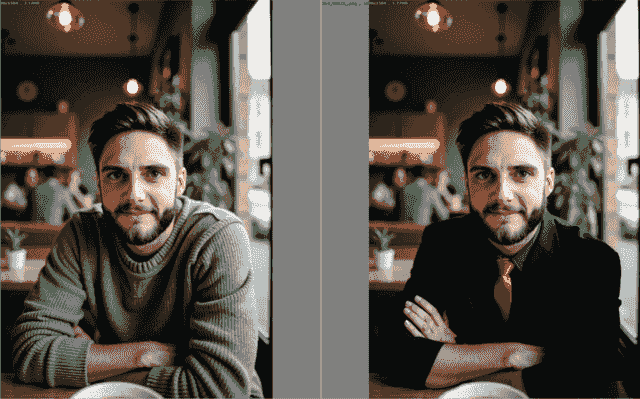
AI headshots aim to blend technology with personal charm. They emphasize customizable expressions, individual styles, and unique personality traits. Each topic discusses how AI boosts authenticity in digital portraits.
Customizable Facial Expressions And Micro-Expressions
AI can adjust facial expressions to make headshots look genuine. By enhancing subtle muscle changes, like a slight smile or a raised eyebrow, the AI brings realistic emotions to digital images. These micro-expressions can convey emotions that match the person’s character.
AI uses advanced techniques to make these expressions more authentic. This allows digital avatars or models to seem more relatable. Customizable features help in adapting the headshot to suit different moods or occasions. The ability to fine-tune these expressions ensures that each headshot feels unique and personalized.
Integration Of Personal Style Elements
Personal style is central to making AI-generated headshots feel authentic. Users can integrate their preferred styles by choosing specific clothing, outfits, or even makeup details. AI tools let users blend their flair with technology.
For instance, selecting a favorite outfit can reflect their personality. This customization enhances how the headshot represents its owner. With AI, styles are copied and genuinely integrated to showcase individuality. By reflecting a personalized fashion sense, AI helps the digital portrait convey personal preferences authentically.
Ability To Capture Unique Personality Traits
AI-generated headshots aim to go beyond simple facial features to capture an individual's unique traits. This involves depicting elements that define the person's character. From a quirky smile to a particular fashion choice, these traits help build a compelling digital likeness.
Through advanced algorithms, models can reflect their distinct personalities. AI tools adapt to include personalized elements, ensuring the headshot captures the person's essence. Whether it's a subtle accessory or a bold clothing choice, these traits help convey their uniqueness and personal style effectively.
Enhancing One's Character Through AI Headshots
AI headshots allow individuals to tailor their images to match specific professional settings, highlight personal strengths and attributes, and maintain consistent branding across social media and professional platforms. This section explores how AI technologies help enhance a person's professional image.
Tailoring Images To Specific Professional Contexts
AI headshots offer flexibility in adapting one's image for different professional situations. Whether creating a LinkedIn headshot or a corporate portrait for a company website, AI tools can adjust backgrounds, lighting, and even wardrobe to suit specific needs.
Different industries have unique expectations for professional images. For instance, a LinkedIn networking profile may benefit from a more formal look, while a vibrant and informal style might suit an entrepreneur promoting products on Instagram. AI technologies simplify the process, making it easy to switch contexts without hiring a professional photographer each time.
Highlighting Individual Strengths And Attributes
AI-powered headshots can accentuate personal strengths and defining features. By refining lighting and focus, these tools help emphasize the confidence and professionalism inherent in one's expression, which is crucial for platforms like resumes and LinkedIn profiles.
These AI-generated images allow users to present their best selves by enhancing qualities like a welcoming smile or determined gaze. For professionals, such enhancements contribute significantly to capturing the attention of hiring managers and clients, offering a competitive edge in digital networks.
Creating Consistent Personal Branding Across Platforms
Maintaining a consistent personal brand across social media and professional profiles is crucial for establishing a recognizable and trustworthy image. Using AI headshots, individuals can ensure their appearance remains professional and cohesive, whether on LinkedIn, Facebook, or Twitter.
Consistent branding aids in creating trust and recognition for entrepreneurs and corporate professionals. By utilizing AI generators, they can achieve high-quality, professional-looking headshots that work well across platforms. This uniformity is essential for personal branding on business cards and networking events, helping to build a strong and seamless professional identity.
Overcoming The 'Fake' Look In AI-Generated Images

Creating natural-looking AI-generated headshots can be challenging. Key techniques involve using advanced algorithms, incorporating imperfections, and finding the right balance between idealization and realism.
Advanced Algorithms For Natural-Looking Features
Developers use advanced algorithms to enhance the realism of AI-generated headshots. These algorithms analyze thousands of real photographs to learn how to replicate natural features like skin texture, hair details, and eye shapes.
The background of an image is also refined to mimic real-life settings better. Additionally, algorithms can adjust angles and poses to match typical human expressions, which enhances authenticity.
By regularly updating these algorithms, developers can improve the quality and realism of headshots, minimizing the risk of appearing overly processed or fake.
Incorporation Of Subtle Imperfections And Asymmetries
Incorporating subtle imperfections is essential for genuine-looking AI headshots. Humans have natural asymmetries and unique marks such as freckles or slight misalignments in facial features.
These imperfections are not flaws but characteristics that add authenticity.
To avoid the polished "airbrush" look, algorithms introduce minor irregularities, like slight differences in eye shape or uneven hair strands. Such details make AI headshots more believable and relatable.
This approach helps the generated images resemble a high-quality headshot taken by a professional photographer.
Balancing Idealization With Realism
Achieving a balance between idealization and realism is crucial. While AI headshots often aim for perfection, excessive idealization can lead to unnatural images.
Developers encourage settings that allow for customized levels of idealization. This allows users to choose how perfect or realistic they want their headshots to appear.
The challenge lies in maintaining a look that is polished yet authentic. AI systems should offer flexibility in adjusting features to suit personal preferences, thus ensuring the headshots look professional without losing individual uniqueness.
The Future Of AI Headshots
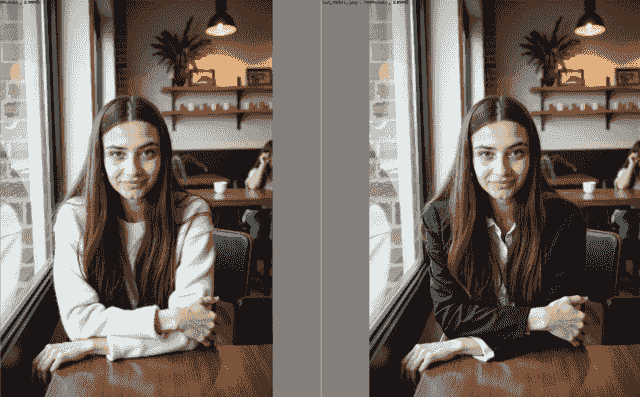
AI headshots are expected to evolve with new capabilities that enhance personalization and interactivity. Advances in real-time adjustments and integration with augmented reality will play significant roles. Ethical considerations remain vital as these technologies become more widespread. Understanding these developments can help individuals and businesses prepare for the upcoming changes.
Potential For Real-Time Adjustments And Personalization
AI continues to improve in making real-time adjustments during headshot creation. This allows users to customize details like lighting, facial expressions, and backgrounds instantly. Tools like Aragon.ai offer flexible options to adjust images for specific platforms.
Personalization can include changing attire or experimenting with different styles. Some advanced tools even provide filters for skin tone adjustments. Android smartphones have begun incorporating these AI features, making headshot creation accessible to a broader audience. By increasing personalization options, businesses can use these dynamic images across various professional settings, tailoring them to specific needs or preferences.
Integration With Augmented Reality For Interactive Headshots
The fusion of AI with augmented reality (AR) promises to transform the way people engage with headshots. By layering AR filters and effects, users can create engaging and interactive images.
AR headshots can display additional information when viewed through compatible devices. This feature is particularly useful for apps and platforms that focus on virtual events or networking. Smartphone users can benefit from this technology through enhanced apps that support AR features. This integration offers a new way for professionals to stand out, providing a creative edge in digital presentations and online profiles.
Ethical Considerations And Transparency In AI-Generated Images
As AI-generated images become more advanced, ethical issues regarding authenticity and transparency arise. Ensuring that users understand these images are AI-generated is crucial. Some platforms already implement guidelines for labeling or notifying users about AI-modified content.
There's also concern about misuse, such as creating misleading or deceptive images. Promoting ethical standards and developing transparent processes is essential, particularly on widely used platforms like Android smartphones. Establishing clear policies for AI-generated content can help maintain trust and integrity, ensuring that these tools are used responsibly.
Impact On Traditional Headshot Photography
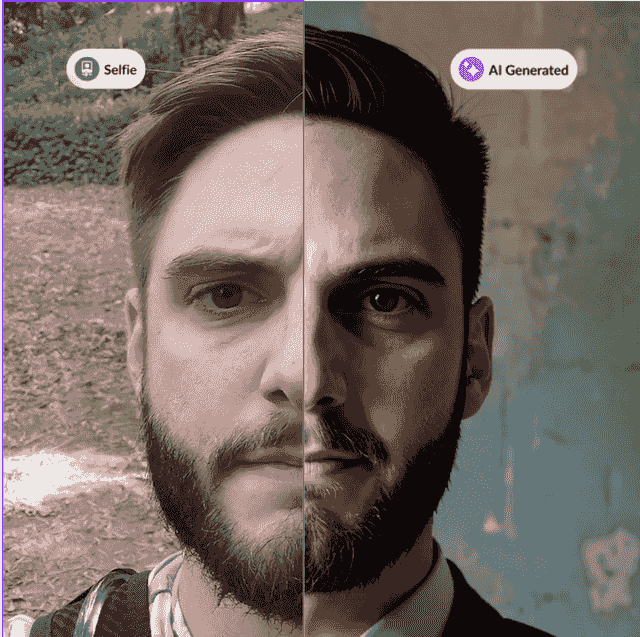
AI headshots are changing how traditional photography operates. They offer new tools and techniques that influence how photographers work and explore creativity. This evolving landscape presents both challenges and exciting opportunities in the realm of professional photography.
Shifting Roles For Professional Photographers
AI technology is altering the traditional role of the professional photographer. With AI headshots becoming popular, photographers are now tasked with learning these new tools to stay relevant. While traditional skills remain important, photographers now need to understand how to integrate AI into their work effectively.
This shift requires photographers to become more like tech consultants, guiding clients on the best use of AI versus traditional methods. By understanding AI's potential, they can offer more diverse options.
Hybrid Approaches Combining AI And Traditional Techniques
Some photographers are embracing hybrid approaches, blending AI with traditional techniques. This combination allows for greater flexibility and creativity in producing high-quality and personalized headshots. With AI, photographers can quickly make adjustments, enhancing photos without needing as much manual editing.
This method can improve efficiency and variety, offering clients something unique. For example, photographers can use AI to test different lighting or backgrounds, then use traditional skills to capture authentic expressions. These hybrid techniques allow photographers to offer fresh and innovative services.
New Opportunities For Creativity And Innovation
AI in headshots opens up new avenues for creativity. By utilizing AI, photographers can experiment with different styles and looks that might not be possible through traditional photography alone. This can lead to more engaging and distinct headshots that stand out in professional settings.
AI tools can generate images that offer a fresh perspective—freeing photographers from previous limitations. This innovation encourages photographers to explore and push boundaries, ultimately enhancing the artistry of creating professional headshots.
The combination of AI and traditional methods leads to a more varied portfolio, expanding the creative possibilities available to both the photographer and the client.
Conclusion: AI Headshots As A Transformative Force In Personal And Professional Imaging
AI headshots are changing the way people present themselves online. They offer speed and convenience, making them a popular choice for both individuals and businesses. AI tools create high-quality images that might once have required professional photographers, democratizing access to professional portraits.
These AI applications provide consistency across different platforms, ensuring a cohesive online presence. This is crucial for personal branding, as it allows individuals to maintain a consistent image on social media, company websites, and other profiles. AI-powered headshot photography is a key player in this evolution.
AI headshots offer a cost-effective and efficient solution for professional image creation. Traditional photo shoots can be expensive and time-consuming. With AI, these hurdles are minimized, allowing users to focus on other aspects of their work and personal lives.
Moreover, AI technology is not limited to headshots. It can enhance various aspects of photography, such as editing, retouching, and even creating realistic 3D renders. This extends the impact of AI well beyond simple images.
In summary, AI headshots are reshaping the landscape of professional imaging. By offering fast, consistent, and affordable options, AI is proving to be a transformative force in the field. As technology advances, its role in photography is only set to grow, offering exciting new possibilities.
Frequently Asked Questions
What are the top rated AI headshot generators currently available?
- Some top-rated AI headshot generators include BetterPic.io, which is known for high-quality and customizable headshots. Other notable tools are Artbreeder and Generated Photos, offering unique styles and vast libraries of AI-generated images.
How can I create a professional headshot using AI technology?
- To create a professional headshot using AI, you upload a selfie to a platform like Canva's AI Headshot Generator. Select your gender identity and let the AI enhance the photo with proper lighting and a professional background.
Are there any free AI headshot generators that produce high-quality results?
- While some free AI headshot generators like Supawork offer convenience, user reviews suggest mixed quality results. Paid services often provide higher quality. Testing free options can be useful, but users may experience limitations in quality compared to paid counterparts.
What do reviews suggest about the best AI tools for creating headshots?
- Reviews highlight that the best AI tools are those that offer high-quality images and customization, such as BetterPic.io. Users appreciate tools that are user-friendly and produce natural-looking headshots.
Can AI-generated headshots be used for professional purposes legally?
- AI-generated headshots can generally be used for professional purposes like job applications or social media profiles. However, it's important to check each platform's terms of service to ensure compliance with any specific legal guidelines or usage restrictions.
What are the differences between paid and free AI headshot services?
- Paid AI headshot services typically offer higher image quality, more customization options, and better user support. Free services may have limitations in output quality or style. Users often need to weigh the cost against their specific needs when choosing between these options.
Save 87%on average on your professional photos.
Whenever, wherever you are.
Get studio-quality, 4K images in a variety of outfits & settings in less than an hour.
Get your headshots nowStart now

